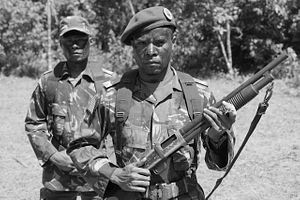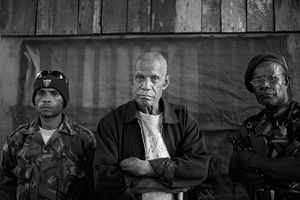The Organisasi Papua Merdeka (OPM) was first created in the 1960s by a group of comrades who called themselves West Papuan Freedom fighters. The organization was created to fight the Indonesian Army, which had occupied large parts of West Papua after the Dutch colonialists withdrew.
The movement grew rapidly in the late 1970s with fighters joining its ranks in all major provinces of West Papua. Their operations mainly consisted of attacking Indonesian patrols. Over the years it started to carry out more sophisticated attacks on foreign mining companies, such as blowing up pipelines in the Grasberg mine in Freeport.
It carried out assaults on civilian aircrafts in Timika, targeted foreign migrant workers, and kidnapped foreigners and journalists during the infamous Mapenduma incident.
The militant wing of the OPM allegedly had ties to former Libyan dictator Muammar Gaddaffi, who had also supplied weapons to the group. Some senior OPM Commanders underwent training in Libya in the 1990s.
The diplomatic wing of the OPM also received support from the government of Senegal in the 1990s and were permitted to open a mission in Dakar.
Today, the military wing has many splinter groups who operate independently.
Some factions have agreed to a truce with the Indonesian government; others continue to wage their guerrilla campaign.
Photojournalist Rohan Radheya was allowed to follow elements of the military wing, visiting their headquarters deep within the jungles of West Papua.












































